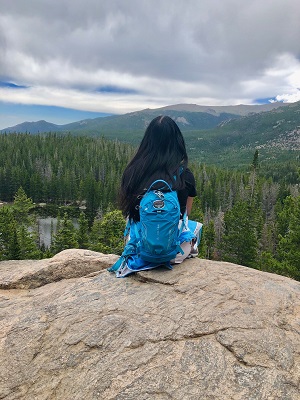Happy Monday, and welcome to Medical Mondays! This is a continuation of last week’s post on securing recommendation letters! :]
I started putting together “LOR packets” in college, and I’ve kinda just gone with it ever since then, because they seem to work out rather well!
Aside from the obvious necessary forms from the programs/institutions you’re applying to, these are the things I’d suggest you have ready to give to your mentor/professor/teacher when you ask for a letter of recommendation (LOR):

1. Thank you letter (or card)
I wrote each of my professors/preceptors a letter thanking them for teaching me + for being an awesome role model/teacher, what I learned from them (+ whatever it was that I really appreciated about them), and conveniently wove in anecdotes of specific memories/experiences that reminded them of why I was awesome (hah, I kid, kinda–but I did write about memories that highlighted good qualities that hinted on what I wanted them to focus on).

“Remember that time I offered myself up as a hypothermia subject so that the class could learn about what would happen if you remained at rest in a tank of cold water for an hour?”
Including a thank you letter/card is a nice gesture, because this person is taking time out of their day to do you a huge favor. Thanking them for that is the least you could do!
2. Cover Sheet
Most programs require that you waive your right to see the letter, so make sure you include that. (It’ll probably have you sign somewhere saying that you waived that right.)
3. CV/Resume
In undergrad, I thought resumes were the same thing as CV’s, and hated that I was limited to just a page, but I have since seen the light. CV’s are wonderful.
For college/undergrad, I included everything I’d done from high school and on.
For grad school and medical school, I included everything I’d done from undergrad and on (I limited the volunteering/community service ones to only the long-term ones I did, or we’d likely be talking 12+ pages). Your CV helps your letter-writer to get an idea of who you are and the things you’ve done outside of their class/rotation/where you volunteer.
My dean also suggested attaching a picture to the upper right hand corner for the preceptors I asked for letters from, just so it’d help put a face to the name.
4. Personal statement
This may not be entirely necessary (unless they ask), but if you attended a ginormous school over 30,000+ students and your professor hasn’t had a chance to really get to know you outside of lectures and the like, this can be really helpful! Your personal statement (and your CV) give your interviewers something to talk about!
5. Transcript
(This is just if they ask to see one, or if you happen to be super proud of your grades.) I included it in undergrad because they asked (they had a lot of fun wading through the 110 classes I took), but not in medical school.
- Is there anything else you’d add to an “LOR packet?”
![I came up with this design ages ago for our class t-shirt contest! :]](https://i0.wp.com/www.fairyburger.com/wp-content/uploads/2019/04/medicalmondays.jpg?resize=453%2C222&ssl=1)




















![The “Cake Bites” trio from @thecakecafedublin (3 cake “bites [although to me, these are more like small slices!] + your choice of 1 hot beverage)! The three I got were the chocolate Guinness cake, Victoria sponge cake, and carrot cake, along with their “Buzz” tea (nettle with elderberries, dandelion + hawthorn). :]!
You can reach this via a “secret” door in the back of The Last Bookshop!
#thecakecafe #dublinireland🍀 #dublineats #teamnoleftovers #fairyburgertravels #eatallthethings #dessertstomach](https://www.fairyburger.com/wp-content/plugins/instagram-feed/img/placeholder.png)





8 comments
Skip to comment form
Such wonderful information for professionals trying to make it in today’s difficult world! Best to be organized and have everything together! Good stuff!
Author
Thanks so much, Clare! :]
Great tips Farrah!!
Julie @ Running in a Skirt recently posted…Things I’m Loving Lately 14
Author
Thanks, Julie! <3
such a helpful post! thank you :) xx, kenz
http://sincerelykenz.com
kenzie negron recently posted…Jawbone UP2 vs. FitBit Flex
Author
Anytime! I’m glad it was helpful! :]
Thanks for sharing this. It sometimes can be such a daunting experience to just submit the LOR. The more you are on top of your game the easier it is for you and the people giving you the recommendation
Audrey recently posted…ANYwhere: My Zen Place
Author
Definitely! The easier you make it for them, the less daunting/frustrating it is! :]